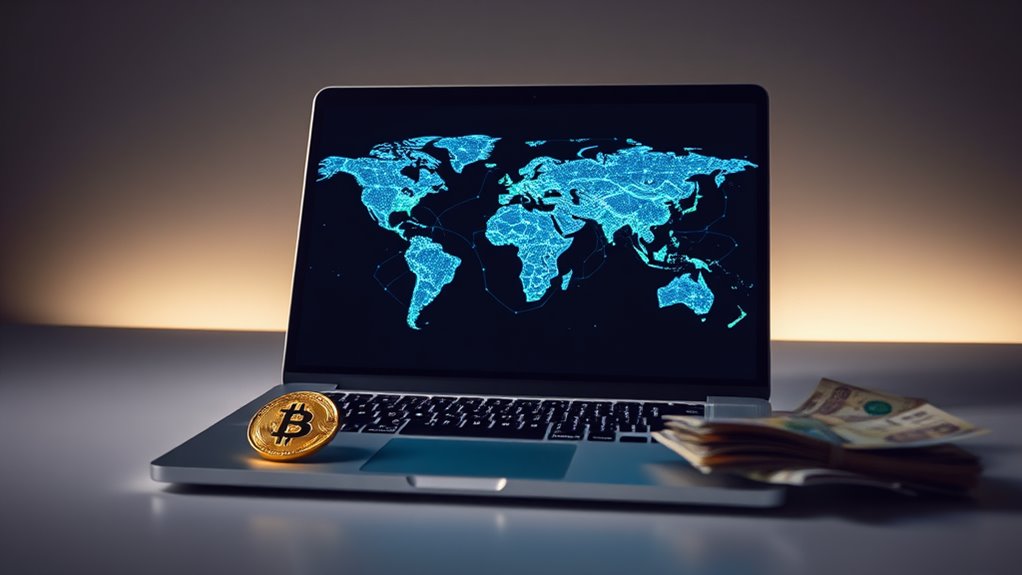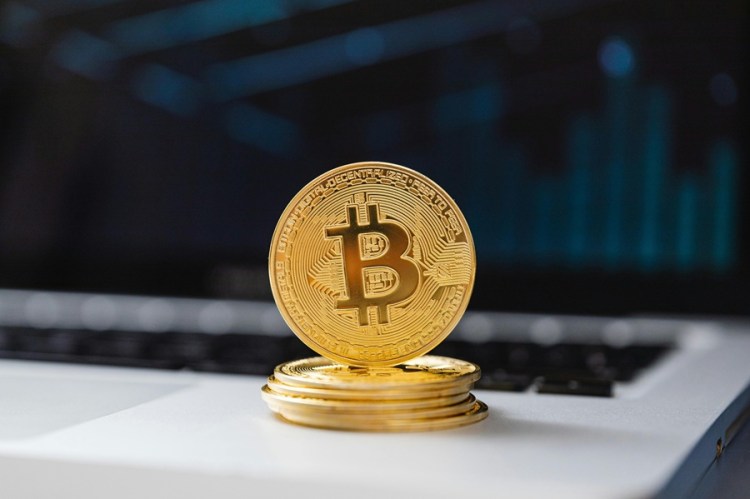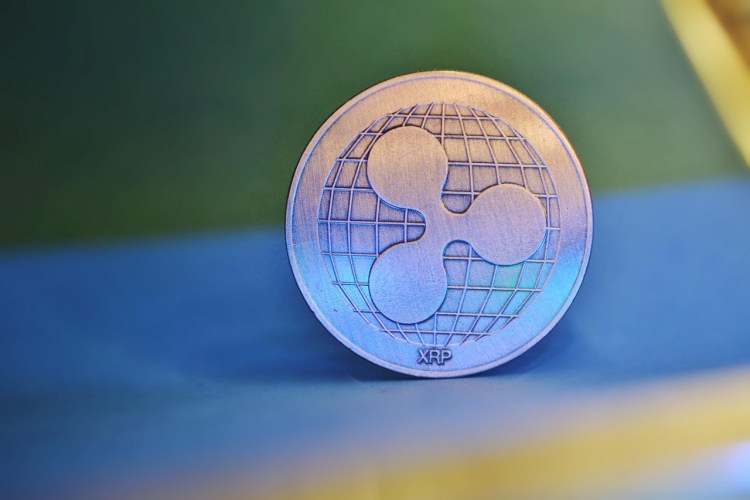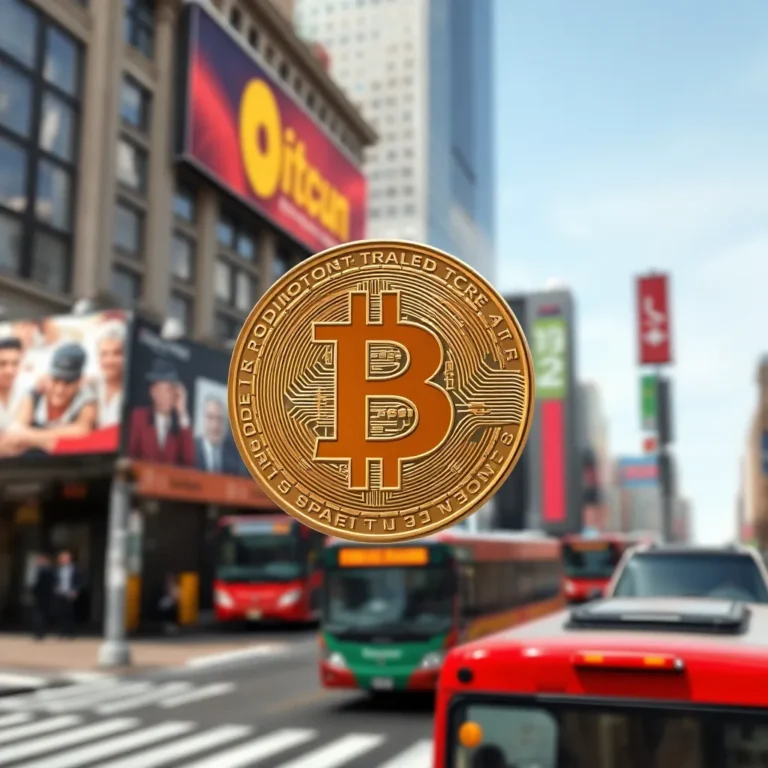Benefits of P2P Cryptocurrency Exchanges
Note: This post may contain affiliate links, and we may earn a commission (with No additional cost for you) if you make a purchase via our link. See our disclosure for more info. The crypto world is constantly changing. This content is for informational purposes only and not financial, legal, or professional advice So, please verify the info on the cryptocurrency provider’s websites.
P2P cryptocurrency exchanges are a game changer. They cut out the middlemen and allow users to trade directly, which means less hassle and lower fees—who doesn't love that? Security's ramped up too, with funds in escrow and private transactions hiding your identity. And let's be real: global trading without borders? Yes, please! Plus, the community handles disputes, so scams are less likely. Sound interesting? There's more to uncover about how these platforms work.
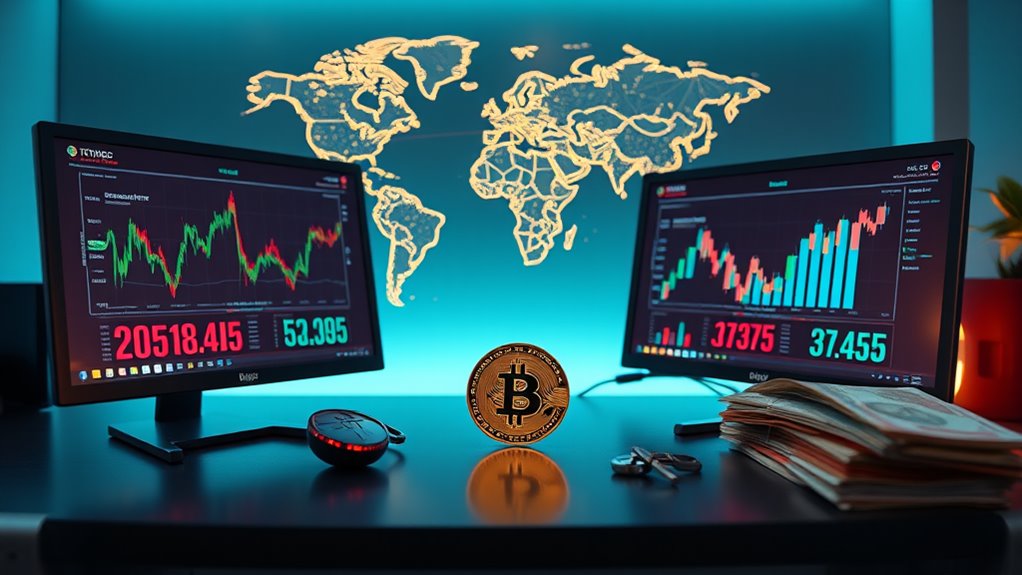
In a world where trust is often in short supply, P2P cryptocurrency exchanges are like a revitalizing change—if revitalizing change came with a side of rebellion against the banking system. These platforms toss aside the need for a central authority, letting users interact directly. No middlemen. No waiting for bank approvals. Just pure, unfiltered transactions verified by the blockchain. It's like a wild west of finance, but with more digital cowboys and fewer shootouts.
One of the biggest perks? Lower transaction fees. Say goodbye to those sky-high commissions. Centralized exchanges can be like that friend who always wants to split the bill and take a huge cut. P2P exchanges? They're more like, "Keep your cash. Let's just trade." With no hidden fees lurking in the shadows, users can trade more often without feeling like they're being robbed. Plus, escrow services often come at no extra charge, adding an extra layer of assurance. P2P exchanges enable users to arrange trades on their own terms, which enhances their trading experience. The escrow system ensures that funds are securely held until both parties fulfill the transaction requirements.
Say goodbye to hefty fees—P2P exchanges let you trade freely without the hidden charges and cuts!
Security and privacy? Spot on. Funds aren't stored in a single vault waiting for hackers to pounce. They're safe, held in escrow until the deal is done. Advanced encryption and two-factor authentication keep transactions under wraps. Similar to how crypto remittances eliminate intermediaries to reduce costs, P2P exchanges provide a direct pathway for users to transact with each other. And for those who value their anonymity, forget about KYC nonsense—pseudonymous trading is the name of the game.
Global accessibility is another feather in the cap. Cross-border trading? Check. No more geographical limitations. Users connect worldwide, maneuvering around local regulations with ease. Multiple languages and payment methods mean everyone can join the party.
And let's not forget about community-driven governance. Users fostering trust, resolving disputes, and voting on decisions—sounds like a dream, right? With active communities, you're less likely to get scammed.
Frequently Asked Questions
Are P2P Exchanges Safe for Beginners?
Are P2P exchanges safe for beginners? Well, that's a loaded question.
Safety hinges on various factors. Escrow services help, but they're not foolproof. KYC protocols? Sure, they add some security, but not every platform enforces them.
Reputable sites provide support, which is nice, but one wrong move can lead to disaster. Beginners should tread carefully, verify profiles, and steer clear of sketchy offers.
Trust is fragile in this world. Don't let it shatter.
How Do P2P Exchanges Handle Disputes?
P2P exchanges handle disputes like a referee in a boxing match—there's oversight, but it's still chaotic.
They use escrow to hold funds until everyone agrees things are peachy. If drama unfolds, moderators swoop in, checking chat logs and transaction histories. They rely on evidence, not just feelings.
Time limits keep things moving. And if you're a repeat offender? Well, good luck getting back in.
Trust is key, folks—play nice or get blacklisted.
What Cryptocurrencies Are Available on P2P Platforms?
P2P platforms are buzzing with a range of cryptocurrencies.
Bitcoin and Ethereum dominate, of course—everyone loves them, right? Tether sneaks in too, because who doesn't want stability?
Then there's the altcoin party: Litecoin, Dogecoin, Cardano, and Solana.
Oh, and let's not forget Monero for those who value privacy.
Some platforms even throw in local currencies.
It's a crypto buffet out there, folks! Take your pick and hope for the best.
Do P2P Exchanges Require Identity Verification?
Do P2P exchanges require identity verification? Well, it depends—surprise!
Some platforms want your ID, especially for big transactions. Others? Not so much. You might trade anonymously, but don't get too comfy.
High-stakes trades often trigger those pesky identity checks. If you're sticking to small amounts, you might dodge the KYC bullet.
But remember, anonymity can lead to scams. So, choose wisely—or not. It's a wild world out there!
Can I Use P2P Exchanges on Mobile Devices?
Oh, absolutely! P2P exchanges are all about that mobile life.
Apps from platforms like Best Wallet and KuCoin make trading a breeze. You can swap crypto, manage assets, and even play with futures—all from your phone.
It's like having a mini crypto exchange in your pocket. Sure, some apps might be a bit overwhelming for newbies, but hey, at least there's no shortage of options.
Mobile trading? Totally a thing.

